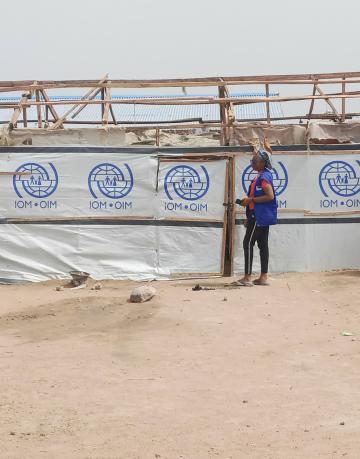
Between January and May 21, 2025, various humanitarian incidents, including campfire outbreaks, heavy windstorms, vandalism, forceful evictions, and influx incidents, directly impacted 5,623 households (25,388 individuals) across 28 IDP sites in 12 LGAs in Borno and Adamawa states. The incidents caused significant damage to camp infrastructure, including shelters, safe spaces, and WASH facilities (latrines and showers).
Despite the significant demand for humanitarian response, the sector has recorded the lowest response rate in years, with less than 1% from its partners following the termination of most major donor-funded projects and generally low funding for the sector in 2025. This has increased the vulnerability of the already displaced populations, with women, children, and the elderly being the most affected. Overall, the multi-sectorial response was inadequate across the affected sites.
Currently, over 4,777 households urgently need shelter and non-food items, repair and maintenance of WASH facilities, and reception centers that have been heavily affected by the recent wave of windstorms. With the onset of the rainy season and a significant percentage of IDP sites, constituting about 116,501 households (510,271) situated in flood-prone areas, the sector projects a surge in demand for humanitarian assistance as most shelters are already past their lifeline and either partlially or fully damaged.
The CCCM, Shelter, and NFI Sector continue to advocate for appropriate humanitarian responses to protect the rights of vulnerable displaced communities while promoting long-lasting solutions to displacement.

